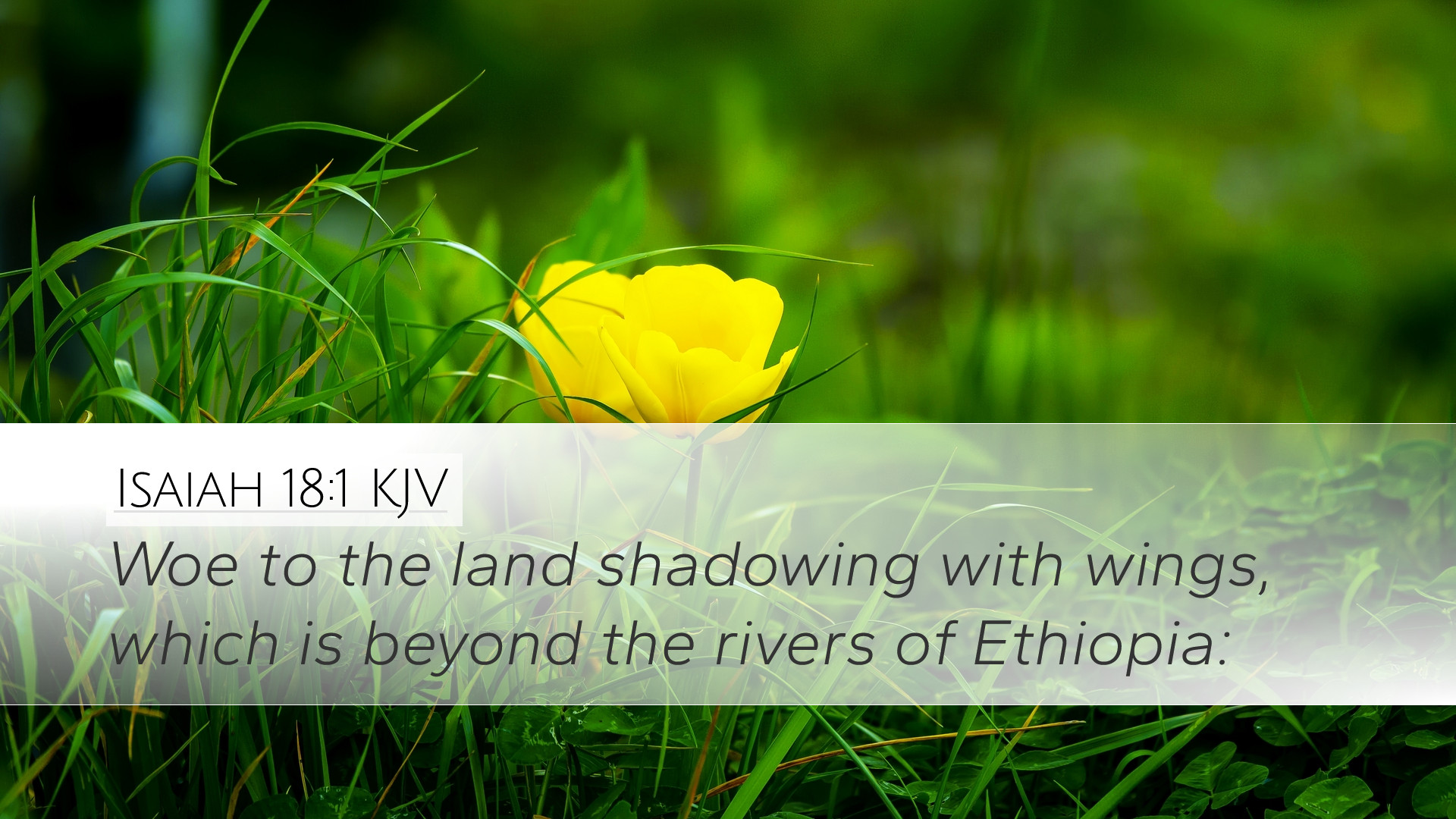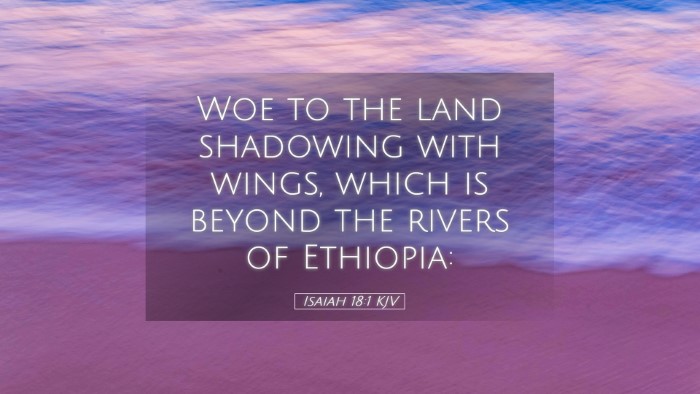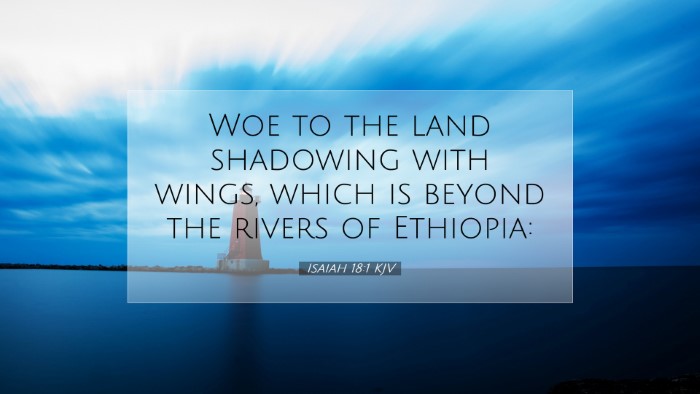Commentary on Isaiah 18:1
Isaiah 18:1 states: "Woe to the land shadowing with wings, which is beyond the rivers of Ethiopia." This verse introduces a prophetic oracle targeting a land described metaphorically as "shadowing with wings," indicating a place of significance in the geopolitical context of Isaiah's time. The richness of this verse offers intricate layers of meaning worthy of exploration, particularly through the insights of prominent public domain commentators.
Contextual Background
Isaiah prophesies during a tumultuous period in Israel's history, where nations vied for power and influence. Chapter 18 serves as an oracle directed toward Cush (Ethiopia), a nation emerging in the context of Assyrian conquests. The dual imagery present in this verse offers an intriguing glimpse into the impending judgment and the divine plans concerning the nations.
Detailed Insights
The verse employs unique linguistic characteristics that deserve scrutiny:
-
The Phrase "Woe to the Land":
Matthew Henry emphasizes the severity of the "woe," underscoring its significance as an expression of prophetic lament and impending judgment. This phrase sets a tone that signifies a warning of impending calamity and serves as a lead-in to the surrounding interpretations related to divine retribution and the sovereignty of God over nations.
-
"Shadowing with Wings":
Albert Barnes notes that this metaphorical language indicates protection and power associated with a great entity (often understood as divine). The "wings" imply a sense of shelter and care, contrasting with the judgment that follows. This imagery invites a reflection on how nations perceive their own power versus the overarching power of God.
-
Geographical Reference to "Beyond the Rivers of Ethiopia":
Adam Clarke provides valuable insight into the historical and geographical context. The reference to Ethiopia points to a region rich in resources and strategically located between several rivers, indicating its significance. This geographical specificity situates the prophecy within a tangible framework of international affairs.
Theological Implications
Within the broader theological discourse, Isaiah 18:1 prompts reflection on several critical themes:
-
Divine Sovereignty: The introduction of a "woe" to a foreign nation reinforces the scriptural assertion that God holds sovereign authority over all nations, not just Israel. This theme is echoed throughout the Book of Isaiah and reminds readers of God's overarching plan for humanity.
-
Judgment and Mercy: The juxtaposition of the imagery of "wings" with the pronouncement of woe also serves to highlight the balance between divine judgment and the possibility of mercy. Even amidst impending doom, there is always the latent opportunity for repentance and turning towards God.
-
The Role of Foreign Nations: This passage inspires contemplation on the role that foreign nations play in God's plan. The prophetic outlook culminates in the understanding that every nation, regardless of its geographical or political standing, functions within God's providential framework.
Practical Applications
For pastors, students, and theologians, the resonance of Isaiah 18:1 offers profound lessons applicable in contemporary contexts:
-
Awareness of Global Affairs: Understanding that God is active in the affairs of nations can cultivate a spirit of prayer and advocacy for leaders and countries, emphasizing the importance of seeking divine guidance in human endeavors.
-
Repentance and Renewed Relationship with God: Reflecting on the "woe," believers are called to examine their own lives and communities for areas needing repentance, as the promise of compassion and restoration is ever-present for those who turn from their ways.
-
Keeping Perspective on Power: The imagery in this passage reminds believers that true power does not rest in political clout or military might; rather, it is rooted in a relationship with God, who is the ultimate source of strength and security.
Conclusion
Isaiah 18:1 encapsulates a profound and sobering warning from God regarding the nation described and offers rich theological and practical insights for believers today. By engaging with the multilayered meanings found within the text through the lens of esteemed commentaries, pastors, students, and theologians can derive valuable lessons on God's sovereignty, the necessity of repentance, and the overarching divine narrative which transcends time and geography.


